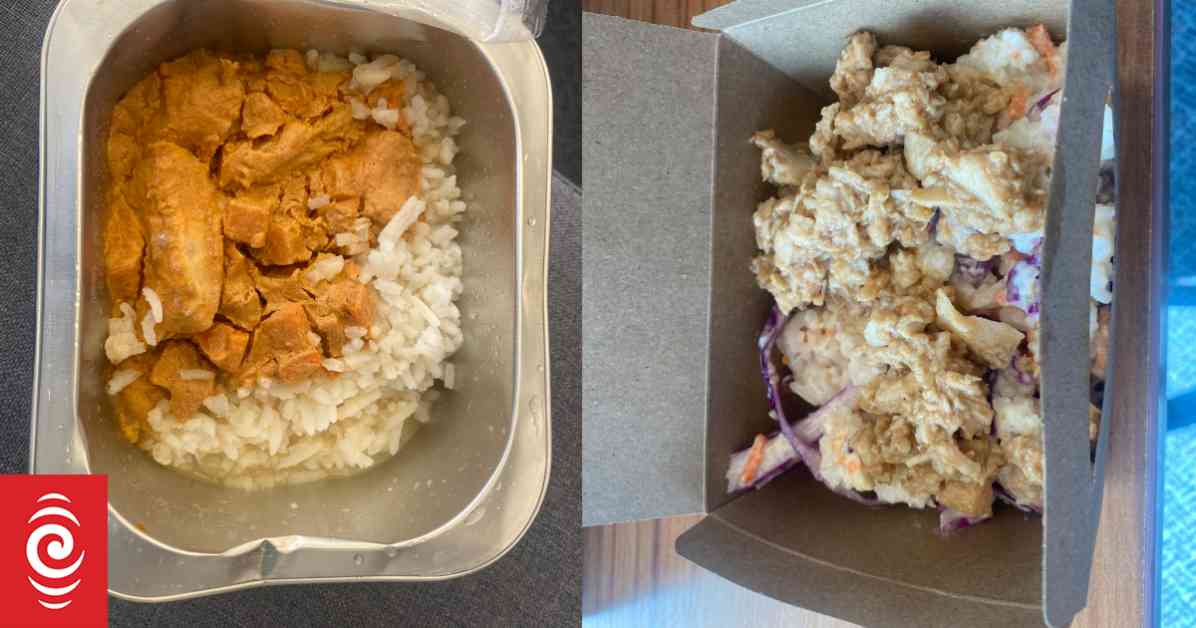After a series of disappointing school lunches, Massey Primary and Lincoln Heights schools in West Auckland finally had the chance to voice their concerns to the organization responsible for the revamped lunch program. Massey Primary had been receiving Pita Pit wraps and sandwiches for nine consecutive days, while Lincoln Heights had been served butter chicken for 11 out of 17 days. This situation has been echoed in schools nationwide due to the new program introduced by the coalition government to cut costs while ensuring nutritional standards are maintained.
Massey Primary School, located in West Auckland, had been enduring the late delivery of Pita Pit lunches for nine days. However, on the ninth day, the students were surprised with a chicken teriyaki on rice. Despite the school having 50 halal students, there was only one certified halal meal available. This discrepancy led Principal Bruce Barnes to take matters into his own hands, resulting in additional expenses to provide halal-friendly meals for the students. The struggle to cater to dietary requirements and the lack of suitable options prompted the school to hire additional assistance for managing the lunch program.
On the other hand, Lincoln Heights Primary School experienced a similar ordeal with their school lunches. After a failed attempt at serving jalapeño curry, the students were met with a continuous supply of butter chicken, causing dissatisfaction among the students and staff. Principal Leisha Brynes estimated that up to 50 percent of the lunches were going to waste, highlighting the urgent need for a solution to the ongoing issue. Despite efforts to communicate their concerns to the School Lunch Collective, which oversees the lunch program, the principals felt unheard and unsure of when the situation would improve.
Compass’s Response and School Principals’ Frustration
Following the persistent challenges faced by Massey Primary and Lincoln Heights schools, Compass, the food company responsible for the lunch program, sent its area manager to address the concerns directly. However, the meeting did not provide clear solutions or timelines for resolving the supply issues or introducing new menu options. Both Principals Brynes and Barnes expressed their dissatisfaction with the lack of accountability and communication from the School Lunch Collective and emphasized the need for higher-level discussions to effect meaningful change. Despite promises to escalate the feedback, the uncertainty surrounding the future of the lunch program remained a pressing issue for the schools.
Moving Forward: Seeking Solutions and Accountability
As the schools grapple with wasted lunches, unsuitable meal options, and escalating costs to accommodate dietary requirements, the urgency for a resolution grows. Barnes and Brynes were left without concrete answers regarding the duration of the current lunch provider, the availability of halal-certified meals, and the overall quality of the lunches. The lack of transparency and accountability from the School Lunch Collective has left the schools in a precarious position, struggling to meet the basic nutritional needs of their students while navigating bureaucratic hurdles.
In conclusion, the challenges faced by Massey Primary and Lincoln Heights schools shed light on the complexities of implementing a centralized school lunch program. The need for effective communication, collaboration, and responsiveness from all stakeholders involved is crucial to ensuring the success of such initiatives. As the principals continue to advocate for better meal options, reduced waste, and improved service, the broader discussion around accountability and oversight in educational programs comes to the forefront. Only through concerted efforts and meaningful dialogue can the issues plaguing the school lunch program be addressed comprehensively and sustainably.

















